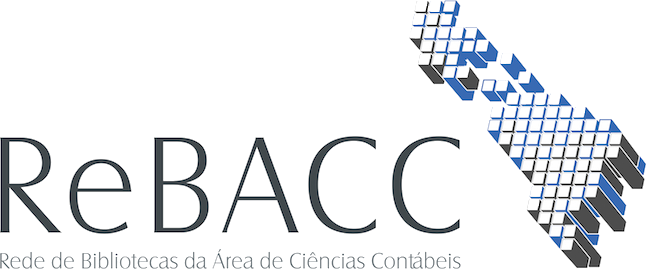Use este identificador para citar ou linkar para este item:
http://rebacc.crcrj.org.br/handle/123456789/1527| metadata.atena.dc.title: | VALOR JUSTO: UMA VERIFICAÇÃO DAS INFORMAÇÕES DIVULGADAS POR EMPRESAS DE CAPITAL ABERTO BRASILEIRAS Fair value: an examination of the information disclosed by companies publicly traded brasilian |
| metadata.atena.dc.creator: | Maíra Melo de Souza; Universidade Federal de Santa Catarina José Alonso Borba; Universidade Federal de Santa Catarina Vivian Osmari Uhlmann; Universidade Federal de Santa Catarina |
| metadata.atena.dc.date.issued: | 2014-11-12 |
| metadata.atena.dc.publisher: | REVISTA DE CONTABILIDADE DO MESTRADO EM CIÊNCIAS CONTÁBEIS DA UERJ |
| metadata.atena.dc.description: | Devido à complexidade do termo valor justo (fair value) na contabilidade, muitos profissionais e acadêmicos ainda se fazem muitos questionamentos a respeito do assunto. A pesquisa em relação ao tema ainda é pouco explorada no Brasil. Por outro lado, no exterior, apesar de amplamente estudado, também não se chegou, ainda, a um consenso. No intuito de contribuir com este tema, bem como na expansão deste debate no Brasil, o presente trabalho objetiva verificar o que as empresas de capital aberto brasileiras têm divulgado a respeito da utilização do valor justo em ativos. Trata-se de um estudo teórico-empírico de caráter descritivo-exploratório. Os resultados revelam que a rubrica, nas Notas Explicativas, com maior frequência do termo ‘valor justo’ é ‘instrumentos financeiros’. Nenhuma das empresas apresentou emNotas Explicativas um conceito para ‘valor justo’, a carência de esclarecimentos em torno deste significado, nas empresas observadas, pode sugerir a necessidade de mais pesquisas em torno de sua definição, bem como da mensuração, do valor justo.Palavras-chave: Valor justo; Evidenciação; Ativos.ABSTRACTDue to the complexity of the term fair value accounting, many professionals and academics are still many questions about the matter. Research by Topic is not explored in Brazil. Moreover, overseas, despite being widely studied, it does not come, yet a consensus. To contribute to this theme, as well asthe expansion of this debate in Brazil, this study aims to look at what the brazilian open capital companies have disclosed about the use of fair value of assets. This is a theoretical-empirical study of descriptive and exploratory. The results show that the item in the Notes, more often the term ‘fairvalue’ is ‘financial instruments’. None of the companies presented in the Notes to a concept for 'fair value', the lack of clarification around this meaning, the companies observed, may suggest the need for more research around your definition, and measurement, of the fair value.Keywords: Fair value; Disclosure; Assets. Due to the complexity of the term fair value accounting, many professionals and academics are still many questions about the matter. Research by Topic is not explored in Brazil. Moreover, overseas, despite being widely studied, it does not come, yet a consensus. To contribute to this theme, as well as the expansion of this debate in Brazil, this study aims to look at what the brazilian open capital companies have disclosed about the use of fair value of assets. This is a theoretical-empirical study of descriptive and exploratory. The results show that the item in the Notes, more often the term ‘fair value’ is ‘financial instruments’. None of the companies presented in the Notes to a concept for 'fair value', the lack of clarification around this meaning, the companies observed, may suggest the need for more research around your definition, and measurement, of the fair value. Keywords: Fair value; Disclosure; Assets |
| metadata.atena.dc.identifier.uri: | http://rebacc.crcrj.org.br/handle/123456789/1527 |
| metadata.atena.dc.identifier: | http://www.atena.org.br/revista/ojs-2.2.3-06/index.php/UERJ/article/view/1282 |
| Aparece nas coleções: | Artigos - Atena |
Arquivos associados a este item:
Não existem arquivos associados a este item.
Os itens no repositório estão protegidos por copyright, com todos os direitos reservados, salvo quando é indicado o contrário.

